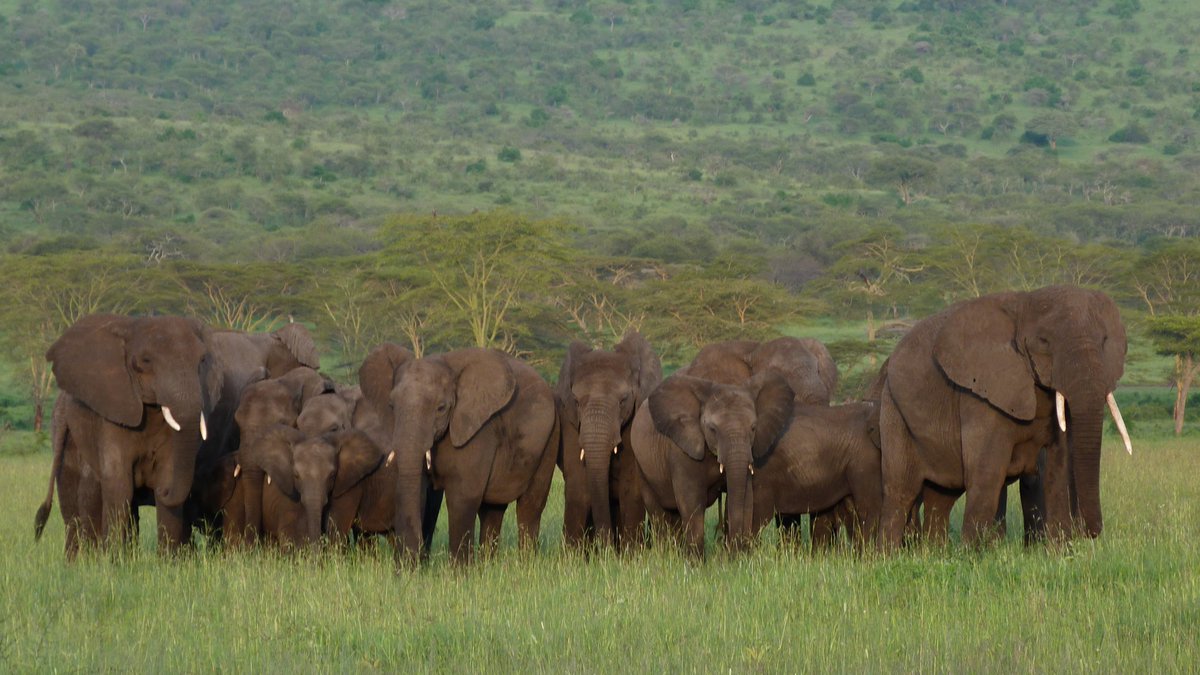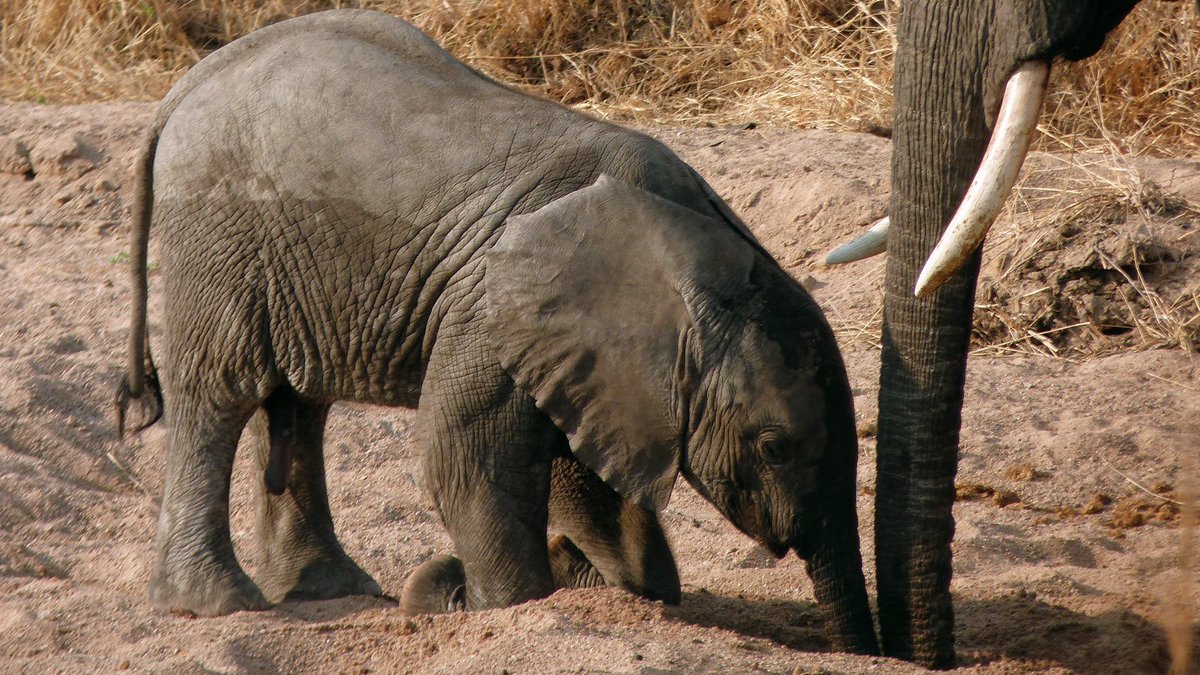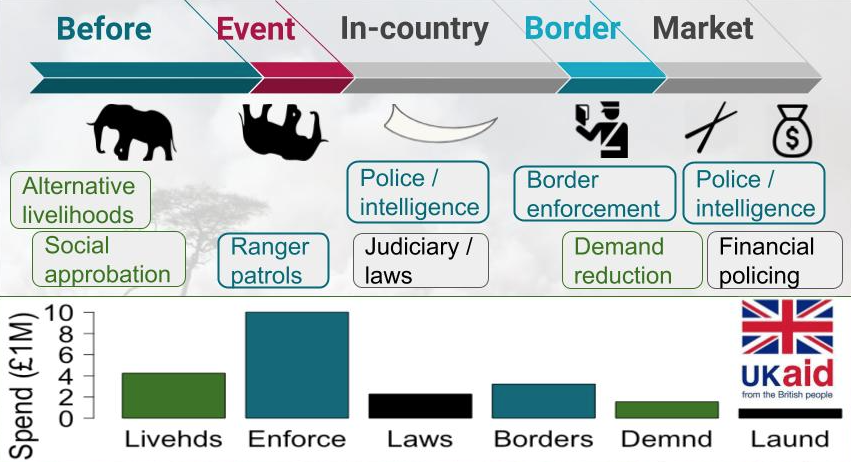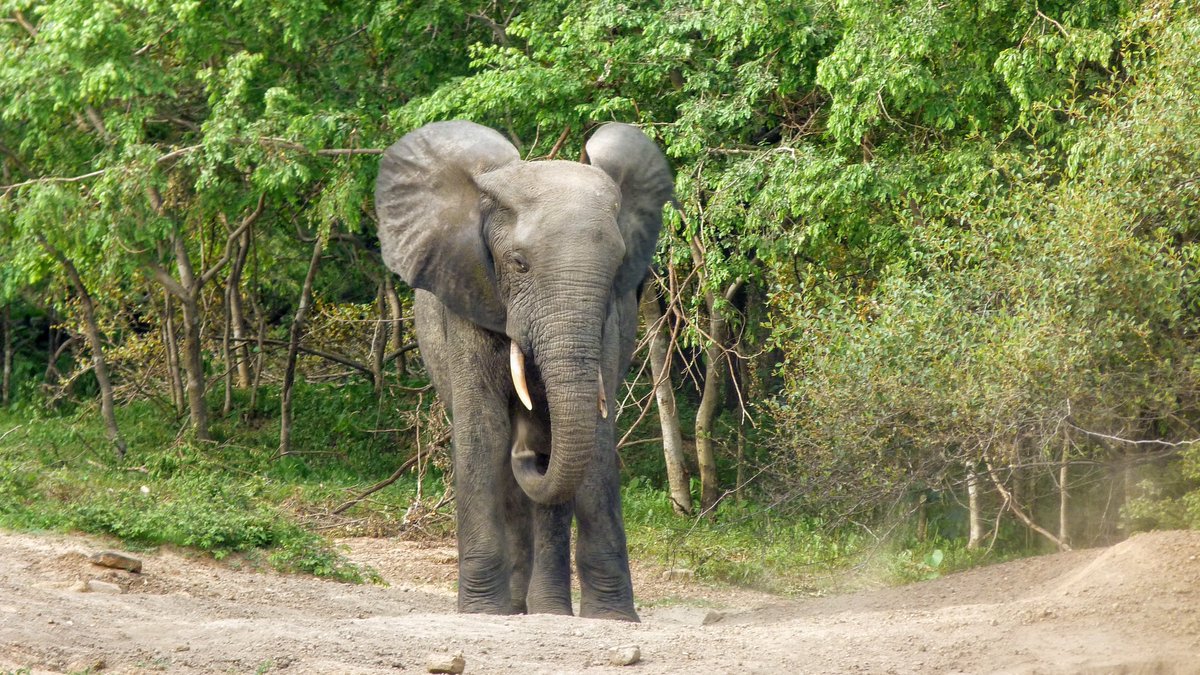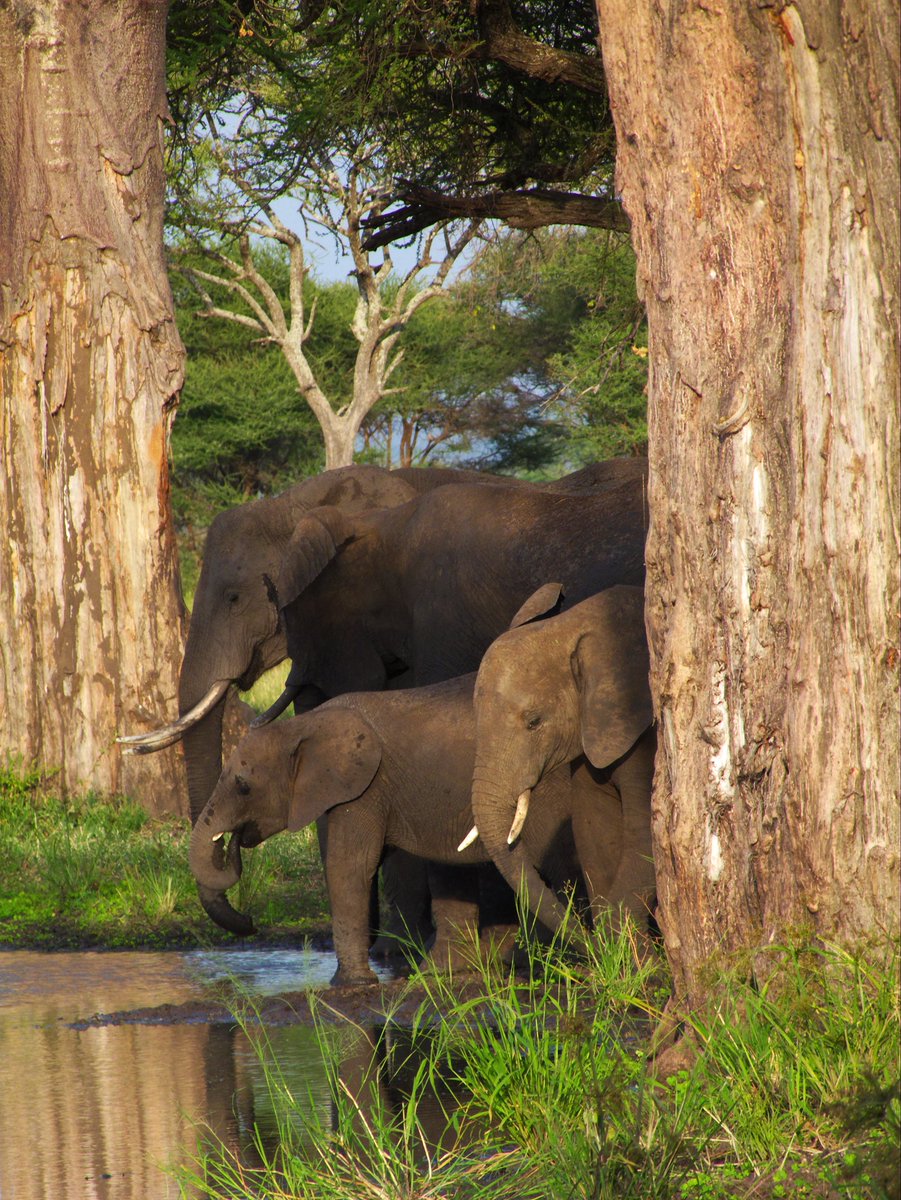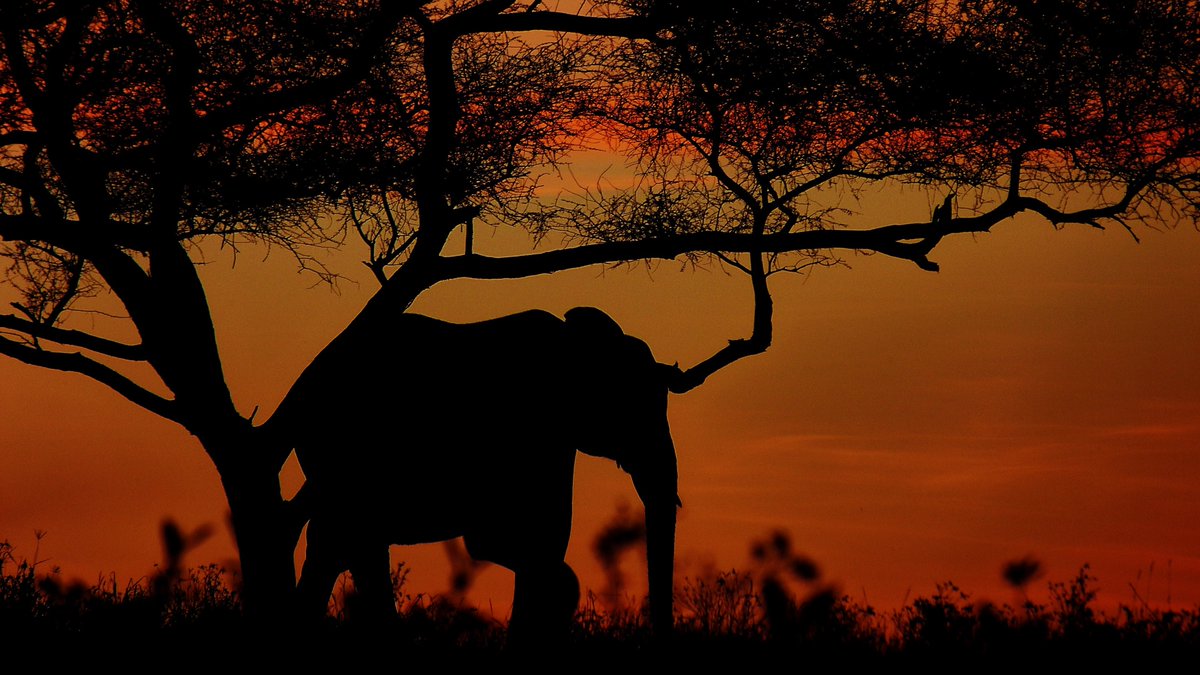Today is #WorldElephantDay & while birds are obviously better, I& #39;ve also worked on  https://abs.twimg.com/emoji/v2/... draggable="false" alt="🐘" title="Elefant" aria-label="Emoji: Elefant">
https://abs.twimg.com/emoji/v2/... draggable="false" alt="🐘" title="Elefant" aria-label="Emoji: Elefant"> https://abs.twimg.com/emoji/v2/... draggable="false" alt="🐘" title="Elefant" aria-label="Emoji: Elefant"> poaching. Here& #39;s a short thread explaining how my thoughts on this have evolved through the research we& #39;ve done @UniofYork @BiologyatYork. My story starts in Tanzania around 2013. 1/10
https://abs.twimg.com/emoji/v2/... draggable="false" alt="🐘" title="Elefant" aria-label="Emoji: Elefant"> poaching. Here& #39;s a short thread explaining how my thoughts on this have evolved through the research we& #39;ve done @UniofYork @BiologyatYork. My story starts in Tanzania around 2013. 1/10
An aerial survey by @tawiritz suggested huge declines in southern populations & I provided behind-the-scenes analyses support. Concern was so great, other surveys were run in 2014 & in 2015 & I was asked to lead an independent analysis: great transparency from @tanzaniagov. 2/10
Like most people, my concern was over poaching at source, so we sought to identify how poachers were operating to enable @tanzaniaparks to effectively target ranger patrols. We learnt poachers operate mainly in wet season & corruption could help them https://www.sciencedirect.com/science/article/pii/S0006320717313757.">https://www.sciencedirect.com/science/a... 3/10
Our more general work was showing that using new analysis techniques & data collected by rangers, we can detect many more illegal activities https://www.sciencedirect.com/science/article/pii/S0006320717313757.">https://www.sciencedirect.com/science/a... But my concern was that this is too late: why get better at finding dead elephants, not stopping them die?4/10
Meanwhile, we were finding that evidence that ranger patrols deters poachers is weak: https://conbio.onlinelibrary.wiley.com/doi/abs/10.1111/cobi.12538.">https://conbio.onlinelibrary.wiley.com/doi/abs/1... My best guess is that a minimum ranger presence is required to discourage easily deterred poachers, but increasing rangers further gives little additional value. 5/10
So we turned to @CITES data on poached elephants across Africa, to identify drivers of poaching in space & time. We showed that ivory price is the strongest driver, but corruption & local poverty are more important than law enforcement within PAs https://www.nature.com/articles/s41467-019-09993-2.">https://www.nature.com/articles/... 6/10
The good news was that poaching had reduced since a peak in 2011, mostly because of declines in Tanzania, but the work raised questions about whether conservation action is well focussed: most @DefraGovUK funding is on law enforcement & alternative livelihoods, not wider. 7/10
Such a focus might miss important opportunities, but also frames the problem as African, caricaturing local communities (who bear the real costs of living with elephants) as villains, not the criminal cartels who make most $$ or the consumers who exploit African resources. 8/10
So now I am much more interested in improving effectiveness of interventions outside protected areas & in demand countries, while ensuring local communities realise benefits from elephant populations: funding this requires major changes to traditional conservation focuses. 9/10
Overall, I& #39;m optimistic that elephants have a future, but I think conservation needs to realise that more of the same is not enough: we need to radically rethink our focus on protecting isolated patches & develop models that equitably tackle causes, not symptoms. 10/10
All this work wouldn& #39;t be possible without a great crowd of collaborators, including @mtarima02 @7hauenstein @Rob_Critchlow @AndyPlumptre @Rija10Al who might not agree with all my conclusions, but have been great at helping me get there! Thanks to you & all the others involved!

 Read on Twitter
Read on Twitter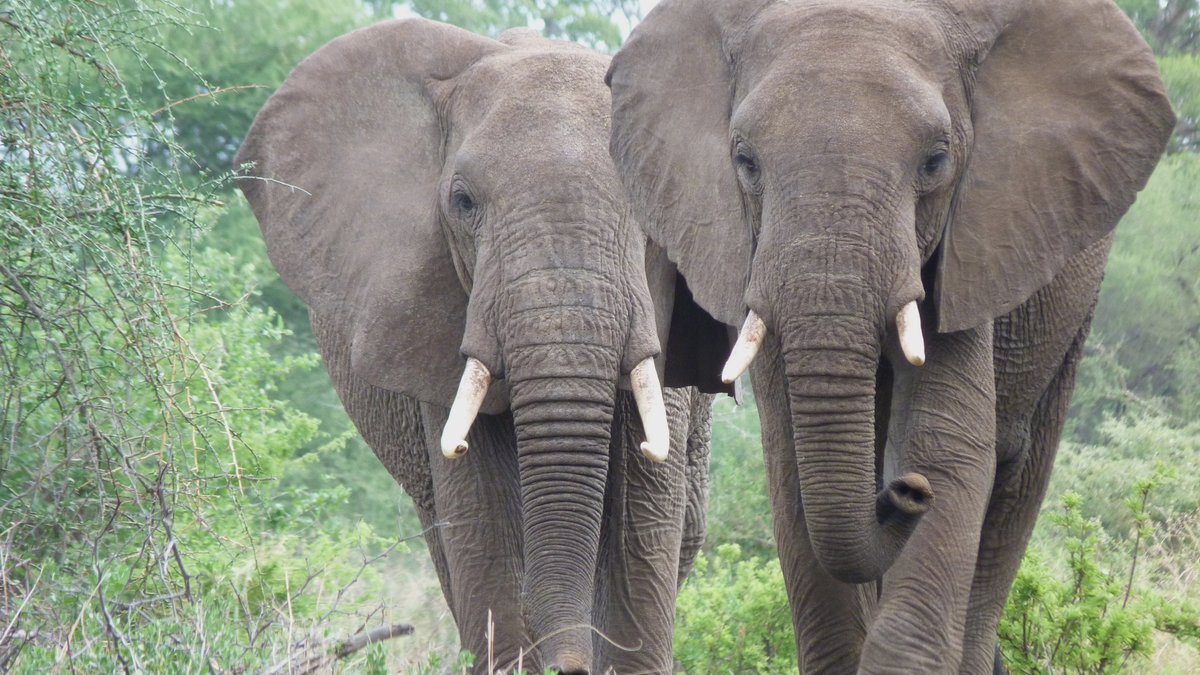 https://abs.twimg.com/emoji/v2/... draggable="false" alt="🐘" title="Elefant" aria-label="Emoji: Elefant"> poaching. Here& #39;s a short thread explaining how my thoughts on this have evolved through the research we& #39;ve done @UniofYork @BiologyatYork. My story starts in Tanzania around 2013. 1/10" title="Today is #WorldElephantDay & while birds are obviously better, I& #39;ve also worked on https://abs.twimg.com/emoji/v2/... draggable="false" alt="🐘" title="Elefant" aria-label="Emoji: Elefant">https://abs.twimg.com/emoji/v2/... draggable="false" alt="🐘" title="Elefant" aria-label="Emoji: Elefant"> poaching. Here& #39;s a short thread explaining how my thoughts on this have evolved through the research we& #39;ve done @UniofYork @BiologyatYork. My story starts in Tanzania around 2013. 1/10" class="img-responsive" style="max-width:100%;"/>
https://abs.twimg.com/emoji/v2/... draggable="false" alt="🐘" title="Elefant" aria-label="Emoji: Elefant"> poaching. Here& #39;s a short thread explaining how my thoughts on this have evolved through the research we& #39;ve done @UniofYork @BiologyatYork. My story starts in Tanzania around 2013. 1/10" title="Today is #WorldElephantDay & while birds are obviously better, I& #39;ve also worked on https://abs.twimg.com/emoji/v2/... draggable="false" alt="🐘" title="Elefant" aria-label="Emoji: Elefant">https://abs.twimg.com/emoji/v2/... draggable="false" alt="🐘" title="Elefant" aria-label="Emoji: Elefant"> poaching. Here& #39;s a short thread explaining how my thoughts on this have evolved through the research we& #39;ve done @UniofYork @BiologyatYork. My story starts in Tanzania around 2013. 1/10" class="img-responsive" style="max-width:100%;"/>

